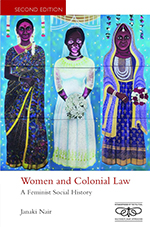This scholarly book is an ambush. Despite the title, its feminist subversiveness is not safely sequestered in a colonial past. It will not permit self-congratulation based on the progressive gender legislation achieved since Independence by the Women’s Movement.
The book’s focus on personal law arising in the colonial period excludes most laws against gender violence from purview. Instead, it explores the pact made between the state, religion and patriarchy in framing the civil status of women at the very onset of modernity. Their foregrounding of women’s place in the social reproduction of family, community and nation is seen to cast a long shadow; one that may be growing darker.
The framing of women’s civil status in religion was in some senses a given in the reliance of colonial lawmakers in India on religious texts in the late 18th century to establish a rule of law over its culturally unknown political subjects. By mid-19th century, colonial officials became bolder in interfering with the politically sensitive realm of the family.

